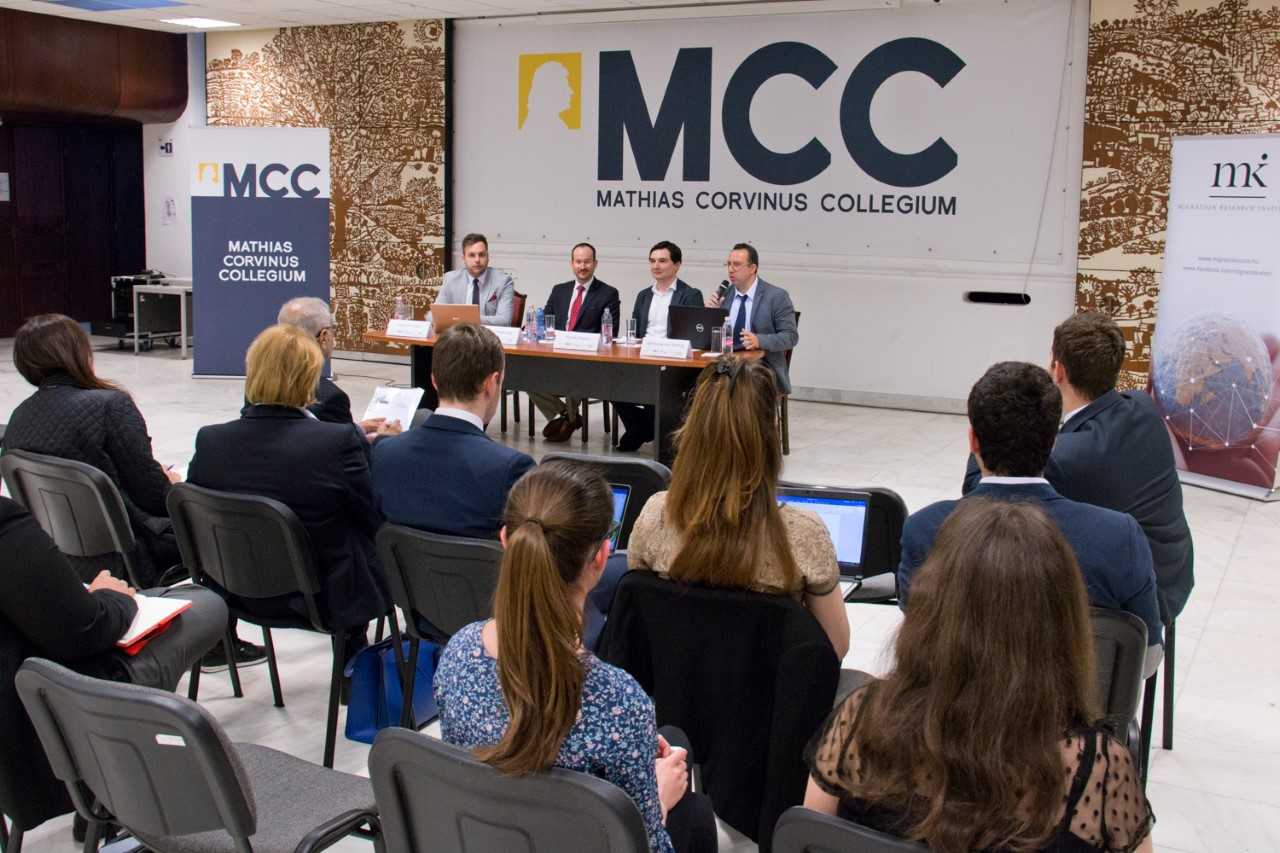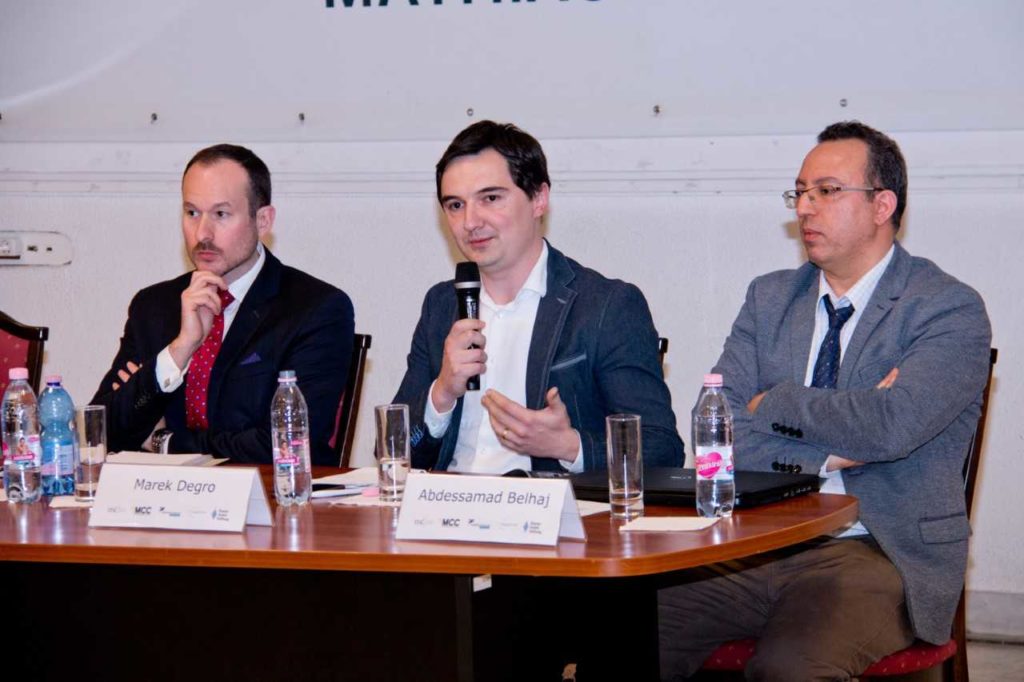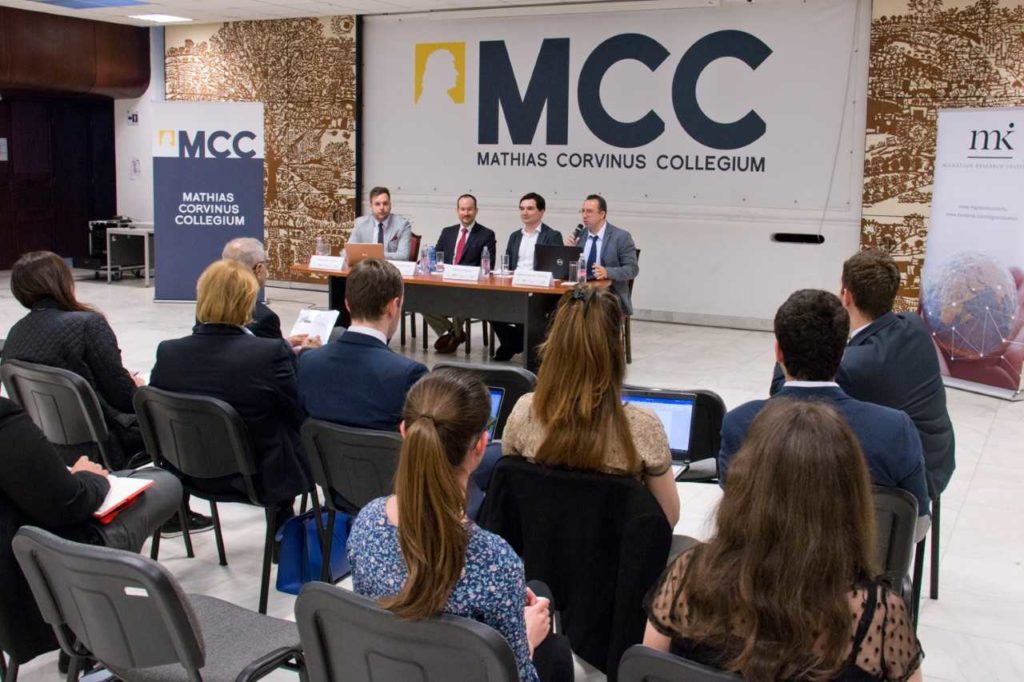The Migration Research Institute, in cooperation with the Centre Confident Czechia, organized a professional discussion about developing the integration of immigrants in Europe on April 16, 2018. Abdessamad Belhaj (researcher, Migration Research Institute), Marek Degro (director general, Anton Tunega Foundation) and Radko Hokovský (president, European Values Think-Tank) shared their thoughts.
Abdessamad Belhaj considered our exact definition of integration crucial, since the meaning of this concept can vary for each of the participants, and it covers a highly complex process. The immigrants predominantly seek to have financial circumstances and individual treatment equal to that of the citizens, while their countries of origin would need them to live as “ambassadors” in the host society. The researcher underlined that integration had to do with the conflict of cultures in the first place. Europe should emphasize its values more. He added that Islam was not always the bottleneck in the failure of migration, the Muslim Kurd-Turk hostility in German is a good example of other causes. Communities of immigrants from the Middle East and Africa are held together by shared national and cultural features more than religion. The problem is with a narrow layer of Muslims that become radicalized. There are 12 thousand people living in France that the authorities consider radical, their integration raises several questions as well. The attitudes of certain countries and societies are crucial. Successful integration requires the host society to welcome the immigrants and be adequately open to them. However, it is clear that this does not happen ever since the 1990’s.
Abdessamad Belhaj believes that those who arrive into Europe legally are open to becoming integrated into the host society, since meeting the required legal procedures is an ongoing witness to their willingness to become citizens of that country. However, the actual integration often fails, primarily due to rejection on the part of the host society.
Marek Degro highlighted that Western Europe and Central and Eastern Europe face different migration problems, due to their minorities being different in kind. Integration problems are experienced in relation to immigrants arriving from the old colonies in Western Europe, while we experience it in relation to Roma people on the eastern part of the continent. Due to cultural and language barriers, it will not be easy to integrate people arriving with the 2015 wave of migration, either. He underlined that the second generation of immigrants was easier to radicalize, as they often feel rejected and excluded. He agreed with Abdessamad Belhaj in the utmost importance of seeking and showing the European values. Marek Derego believes that migration is a historical process, and it is human nature to fear from anything different or new. Moreover, this fear seems to be justified considering the risks of the present migration wave in Europe – the Slovak expert reasoned.
Radko Hokovský believes that even though Central Europe did not have to face serious integration problems such as Western Europe, but the consequences of political mistakes made during the migration crisis affect us as well. He says that the integration programs do not work properly because they are too much process-oriented, and not goal-oriented. He believes that integration was not a technical, but primarily a political question. The Czech expert indicated that integration should take place along our basic values, the goal should be to convey these to those arriving into Europe and have them comply with these. We can talk about the criteria of integration in general on the one hand, but integration in the Western culture consists of accepting and honoring three basic values in specific on the other: human dignity, equality before the law, and personal freedom. Radko Hokovský considers not having a shared understanding of integration as a severe problem. In addition, we have very little data and research on what this concept means for people, making it difficult to measure the willingness to integrate. Migration policy and integration policy should work in alignment, and we should only let as many immigrants in as we can truly integrate.


